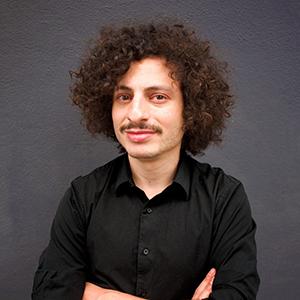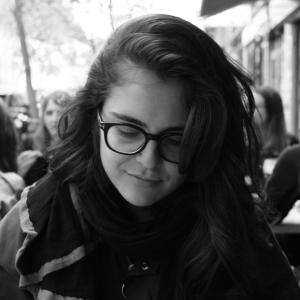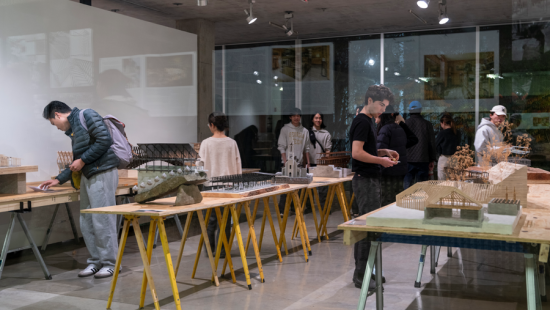Preston H. Thomas Memorial Symposium: Real Time

image / MTWTF
Overview
Real Time
A one-day symposium organized by Assistant Professor of Architecture Farzin Lotfi-Jam with coordination by Design Teaching Fellow Ekin Erar.
Consider an everyday occurrence: a person sits at their computer and presses a key, launching three parallel events at cascading speeds. The first sends a packet through telecommunication networks to an intercontinental server and back within two hundred milliseconds. The second pushes a pixel to the computer screen through peripheral, system, and display devices, with a combined latency of one hundred milliseconds. And the third stimulates neurons in the person's brain as a result of changes to their visual field, processed in as little as thirteen milliseconds. Herein lies the vast and intimate scales of realtime — an ad-hoc planetary megastructure directing the movement of packets, pixels, and neurons.
"Real Time," the semester's second Preston Thomas Memorial Symposium, scheduled for April 13 in Milstein Auditorium at Cornell AAP, brings together artists, designers, and scholars to examine the spatial politics of realtime — a term returning to contemporary importance with new applications like realtime gaming engine visualizations, realtime digital twinning, realtime metaverse interactions, realtime military strikes, and realtime urban sensing. The symposium examines the translation of computational technocracy into the infrastructures, data-collecting practices, modeling paradigms, and information visualizations connecting war games to video games to urban games. "Real Time" locates the history of realtime control and capitalization by looking at its applications in military, entertainment, and urban spheres, with a particular focus on the marginalized communities and migratory populations that are often the targets of realtime surveillance and containment. Importantly, the symposium amplifies practices of realtime media production that offer more just spatial and temporal orders.
The program consists of three panels followed by a keynote: Liveness asks what the value and creative possibilities of instantaneity are in an era of on-demand media entertainment, digital asset libraries, and persistent virtual worlds; Fidelity explores the role of temporal and spatial resolution in the production of informational authority; and Transmissions asks what histories, presents, and future imaginaries are allowed and foreclosed by regimes of record collecting. Ultimately, the symposium asks if it is possible to disassemble the uneven architectures of realtime and, in their place, reassemble more ethical and equitable computational concepts of space, time, and being — to imagine the movement of packets, pixels, and neurons beyond the purview of military, security, and financial interests.
A Recursive History of Urban Simulation, a companion exhibition on view in the John Hartell Gallery April 10–20, presents an episodic history of urban simulation. The exhibition will feature a catalog of computational concepts and their implementations, including virtual humans, synthetic populations, and digital twins. The installation itself is a realtime system: visitors will be live streamed into a virtual world and can interact with an urban simulation produced based on historical research.
The Preston H. Thomas series is funded through a gift to Cornell's College of Architecture, Art, and Planning from Ruth and Leonard B. Thomas of Auburn, New York, in memory of their son, Preston. "Real Time" is also funded by the Cornell Mui Ho Center for Cities. The symposium events are free and open to the public.
Schedule
9:15 a.m. | Welcome
Farzin Lotfi-Jam
Assistant Professor of Architecture, Cornell AAP
9:30 a.m. | Liveness
Pegah Pasalar
Interdisciplinary Artist, Filmmaker, and Film Editor
Kidus Hailesilassie
Designer, Creative Technologist, and World Builder
Ainslee Alem Robson
Film Director, Writer, and Media Artist
Damara Inglês
Metaverse Designer and Strategist
Paul Ramírez Jonas, Moderator
Professor and Chair of the Department of Art, Cornell AAP
11 a.m. | Fidelity
Chaewon Ahn
Assistant Professor of Social Sciences (Urban Studies), Yale-NUS College
Leanna Mei Humphrey
Assistant Professor of Architecture, Hampton University
Biayna Bogosian
Assistant Professor of Architectural Technology, Florida International University
Marco Ferrari
Cofounder of Studio Folder and Program Head of Information Design, Design Academy Eindhoven
Jenni Minner, Moderator
Associate Professor and Director of Graduate Studies, Department of City and Regional Planning, Cornell AAP
1:30 p.m. | Lunch
2:30 p.m. | Transmissions
Elise Misao Hunchuck
Curator and Editor, Transmediale
Jordan H. Carver
KPF Visiting Scholar in Architecture, Yale University
Samaneh Moafi
Assistant Director of Research, Forensic Architecture
Nora Akawi
Assistant Professor of Architecture, Cooper Union
5:15 p.m. | Keynote
Shaka McGlotten
Professor of Media Studies and Anthropology and Chair of the Gender Studies and Global Black Studies Programs, Purchase College–SUNY
6:30 p.m. | A Recursive History of Urban Simulation
Exhibition Opening and Reception
Curated and Designed by Farzin Lotfi-Jam
John Hartell Gallery, Sibley Hall
Speakers
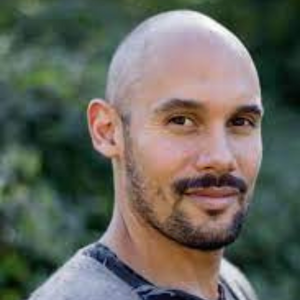
Shaka McGlotten
Keynote Speaker
Shaka McGlotten is Professor of Media Studies and Anthropology at Purchase College–SUNY, where they also serve as Chair of the Gender Studies and Global Black Studies Programs. Their work stages encounters between black study, queer theory, media, and art. They have written and lectured widely on networked intimacies and messy computational entanglements as they interface with qtpoc lifeworlds.
They are the author of Virtual Intimacies: Media, Affect, and Queer Sociality, published by SUNY Press in 2013. They are also the coeditor of two edited collections, Black Genders and Sexualities (with Dana-ain Davis) and Zombies and Sexuality (with Steve Jones). Their book Dragging: Or, in the Drag of a Queer Life and their current project, Black Data, has been supported by Data & Society, the Alexander von Humboldt Foundation, Akademie Schloss Solitude, and Creative Capital | The Andy Warhol Foundation.
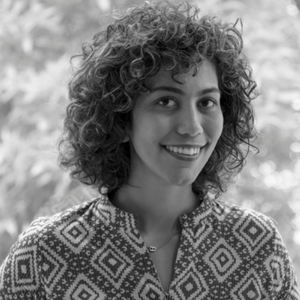
Pegah Pasalar
Panel 1 Speaker
Pegah Pasalar (b. 1992) is an Iranian interdisciplinary artist, filmmaker, and film editor currently based between Chicago and Brooklyn. Her autoethnographic practice encompasses video, installation, and film and explores themes including identity convulsion, cultural memory, fragmentation, temporality, and displacement. Pegah is particularly interested in oral histories and the modes of storytelling people use to refabulate the past.
Pasalar was a full-merit scholarship awardee at the School of the Art Institute of Chicago, from which she received her M.F.A. with a focus on film and video. Pasalar was selected to participate in the Liz and Luz visual arts program as part of the Chicago Mexico City MacArthur-backed exchange program on the theme of displacement.
She was a recipient of the City of Chicago's Department of Cultural Affairs grant, 3ARTS "Make a Wave" grant, and has received fellowships including the Kala Media residency award, Bemis, Yaddo, Banff, UnionDocs, and Points North. She was recognized as one of NEWCITY Magazine's 2020 Film 50 Gems. Her work has been exhibited at festivals around the world, including the Athens International Film and Video Festival, Chicago Underground Film Festival, Festival Internacional de Cine Documental de Buenos Aires (FIDBA), Austria International Film Festival, Onion City Film Festival, Ecra, and more.
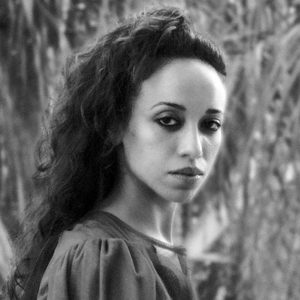
Ainslee Alem Robson
Panel 1 Speaker
Based in Los Angeles, Ainslee Alem Robson is an award-winning writer-director and media artist and currently a Sundance Interdisciplinary "Art of Practice" Fellow. She crafts afrosurreal stories about tensions embedded within the intersectional layers of identity, perception, the digital, and nostalgia. She grew up in Cleveland, Ohio, and later lived in Paris, France, Rabat, Morocco, and Addis Ababa, Ethiopia. With a background in philosophy and an insider/outsider perspective, she focuses on narratives that deconstruct hierarchy and colonial legacies using film and emerging technologies in digital art.
Robson is passionate about social justice and harnesses storytelling as a vehicle for meaningful discussion and change. She creates productive images of Ethiopia and Blackness to move beyond the reductive Western gaze and misrepresentative narratives of Africa. She developed an experimental narrative and visual language for reconstructing tezeta/memory in Ferenj: A Graphic Memoir in VR which had its world premiere at the Tribeca Film Festival in 2020 and was awarded the Special Jury Prize at NewImages 2020 in Paris. This afrosurreal immersive experience is a visual dialogue between memory, reality, and the digital, built with crowd-sourced data and gaming technology based on her personal experiences of double consciousness as an Ethiopian American growing up in the contrasting contexts of cultural alienation and cultural immersion — between predominantly white institutions and Empress Taytu, the first Ethiopian restaurant in Cleveland, Ohio. "Ferenj" meaning "foreigner" in Amharic, oscillates between exclusion and access, creating a productive space of tension that mimics her experience in real life while inviting the viewer to reflect on their own position in relation to the story.
Robson's work is characterized by speculative and emancipatory storytelling strategies, with a transcultural, feminist, and decolonial focus. Her writing has been published by the Solomon R. Guggenheim Museum and e-flux Architecture, Offramp Academic Journal, Art Africa Magazine, and Vogue Italia. She has worked on the production of several commercials as well as on the production team of the Addis Foto Fest '16 with award-winning photographer and cultural entrepreneur Aida Muluneh. She has also written for Season One of Tibeb Girls, one of the first children's animation series created in Africa for Africans. Robson holds an M.S. in Fiction & Entertainment from SCI-Arc (2019) and a B.A. in Philosophy and French from The College of Wooster (2011).
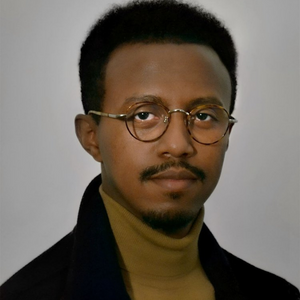
Kidus Hailesilassie
Panel 1 Speaker
Kidus Hailesilassie's design merges the boundaries between spatial practice and futures informed by Africa and its diasporic conditions. With a background in architecture and speculative world-building, his works focus on the hybrid nature of reimagining transcontinental archives to form counter-narratives of Black consciousness.
In the past, Hailesilassie has collaborated with international artists and institutes such as Studio Other Spaces, Studio Olafur Eliasson, Forum des Images, Institut für Auslandsbeziehungen (IFA), and Contemporary And (C&). As a former EDGE fellow at SCI-Arc, he holds an M.A. in Fiction and Entertainment. Hailesilassie is a current fellow at the 2022 MIT & Black Public Media Visiting Artist Residency. While at OpenDocLab, he is working on The Culture Archive, a multi-media immersive experience of an AI-generated language archive from the continent of Africa and its diaspora. He cofounded Guada Labs, an architecture, art, film, and new media practice based in Los Angeles.
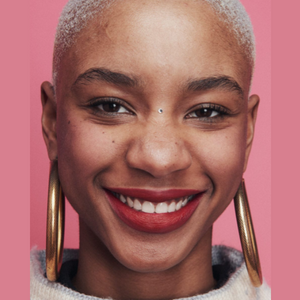
Damara Inglês
Panel 1 Speaker
Damara Inglês is a metaverse designer and strategist focused on digital fashion and immersive experiences. She was born in Luanda (Angola), grew up in Lisboa (Portugal), and graduated in London (U.K.). As such, the notions of intersectionality, minority empowerment, and nomadic thought are inherent to her work process.
In 2019 she started her metaverse adventure after graduating from the Fashion Media Practice and Criticism BA + MA at the London College of Fashion, University of Arts London. There she realized that her practice appreciates the visceral materiality and craft of analog fashion, as well as the emancipatory value of digital fashion, exploring technology as lenses to transform the fashion industry through sustainability, innovation, and disruptive thought. Her work aims to blend the notions of object and digital aura, experience and memory, mysticism and technology.
In 2021 Inglês became an Official Lens Creator for Snapchat and designed "Kazumbi" in collaboration with HERVISIONS and Snapchat Spectacles, expanding her digital skills and gaining early access to disruptive technologies. Through her practice, she collects different elements of personal meaning. So far, she has collected three: "Extended-Tactility," "Bio-Cyborg," and "Intersectional Digitisation," where she explores the complexity of her own identity as an African woman in the diaspora and in the Metaverse.
"I love to think about the intercultural and hyper-social connections within the Metaverse, and dream about it as an evolutionary step of intra- and inter-human experiences. Not as an echo of the different categories of segregation that are part of the contemporary discourse IRL."
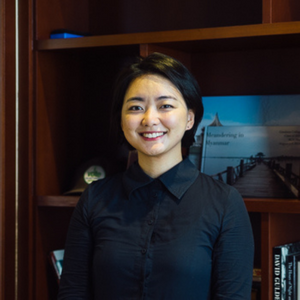
Chaewon Ahn
Panel 2 Speaker
Chaewon Ahn is an urban researcher who studies the relationship between social systems and the built environment using urban data and analytical frameworks.
Her research interests are formed through academic and professional experiences in architecture, urban design, data visualization, and urban studies. Her research focuses on social networks and communities in cities, their relationship to the structure of the built environment, and the influences of urban planning programs that engage them. She uses analytical skills to conduct data-driven analysis that primarily focuses on big data, participatory data collection, spatial analysis, and social network analysis to expose persistent issues of power in urban development processes.
Trained as an architect, urban designer, and data visualization designer, Ahn holds a Ph.D. in Urban and Regional Planning and a master's degree in Architecture and Urbanism from MIT. She has worked with various research laboratories at MIT, including the Leventhal Center for Advanced Urbanism, the Civic Data Design Lab, the MIT Election and Data Science Lab, the JTL Urban Mobility Lab, and the Senseable City Lab.
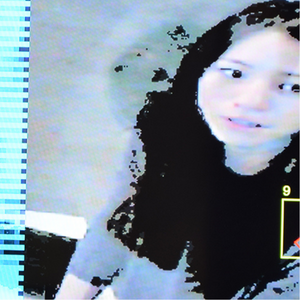
Leanna Mei Humphrey
Panel 2 Speaker
Leanna Mei Humphrey is an architect, researcher, and assistant professor of architecture at Hampton University. Her work focuses on the role of various media and technology in the representation of architecture and urban space, particularly with respect to questions of opacity and haunting. She is thrilled to be returning to Cornell University, where she received her post-professional master's in Advanced Architectural Design in 2022. During this time, she was also accepted into the Mellon Urbanism Seminar, an interdisciplinary lab led by Tao Leigh Goffe and funded by the Mellon Foundation which most recently published the co-authored dossier "Dirge: Black and Indigenous Hemispheric Burial, A Sound Sculpture" in ASAP/Journal. Humphrey has also been a researcher at AAP's Circular Construction Lab led by Felix Heisel, where she helped develop an interactive visualization for the project 10 Aspects of Sustainability. She is currently a technician at Dark Laboratory, a humanities lab and design studio centered on race, technology, and climate, and now runs her own practice as a designer in Virginia Beach.
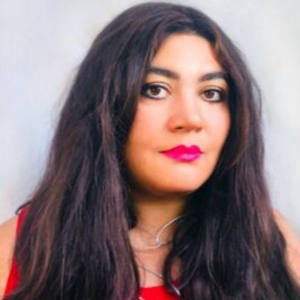
Biayna Bogosian
Panel 2 Speaker
Biayna Bogosian is an Assistant Professor of Architectural Technology at Florida International University's School of Architecture, Associate Program Director of FIU's Robotics & Digital Fabrication Lab (RDF Lab), and Affiliated Faculty with FIU Institute of Environment, where her interdisciplinary research is supported by several NSF grants. Bogosian's academic and professional background in architecture, urban design, environmental design, computational design, data science, spatial computing, and media arts has allowed her to move across and connect disciplines and different scales of design. It has also allowed her to understand innovation in design within a broader environmental context and explore data-driven and citizen-centric approaches to improve the built environment and the inhabitants' lives.
She is currently a doctoral candidate in the Interdisciplinary Media Arts and Practice (iMAP) program at the University of Southern California (USC). Her Ph.D. research focuses on the development of interactive and immersive urban environmental information representation media. Her dissertation, "Exploratory Environmental Interfaces," focuses on the socio-spatial and political dynamics of environmental pollutant monitoring and representation using readily available sensors and immersive representation methods. This ongoing research has been deployed in the cities of Los Angeles, Miami, New York, Princeton, Seoul, Shanghai, Mexico City, and Yerevan in various capacities.
She has been a serving member of ACADIA Organization's Board since 2020 and cochaired the ACADIA 2021 Conference "Realignments: Toward Critical Computation" (November 3–6, 2020), CAAD Futures 2021 Conference "Design Imperatives: The Future is Now" (July 16–18, 2020), DigitalFUTURES World Workshops (2020–2021), and was chair of the InclusiveFUTURES Lecture Series 2021.

Marco Ferrari
Panel 2 Speaker
Marco Ferrari is the cofounder of Studio Folder, an interdisciplinary design practice based in Milan, working both on commissions in the fields of culture and the arts and on research projects examining the politics and visualization of spatial data. Together with Elisa Pasqual and Andrea Bagnato, he is the coauthor of A Moving Border: Alpine Cartographies of Climate Change, a book based on Studio Folder's long-term project Italian Limes, and jointly published by Columbia Books on Architecture and the City and ZKM Karlsruhe in 2019. He has been teaching Methods and Tools for Representation at ISIA Urbino between 2010 and 2022, and co-led ADS7 at the Royal College of Art in London between 2019 and 2022, together with Elise Misao Hunchuck and Jingru (Cyan) Cheng. He is currently Adjunct Assistant Professor at Columbia GSAPP and the head of the MA Information Design at Design Academy Eindhoven.
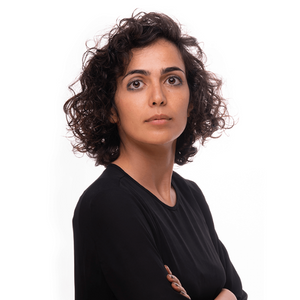
Samaneh Moafi
Panel 3 Speaker
Samaneh Moafi is the Assistant Director of Research at Forensic Architecture, a multidisciplinary group in Goldsmiths, University of London that uses architectural techniques to investigate cases of state violence, violations of human rights, and environmental destruction. Moafi is responsible for identifying new areas of research, overseeing research quality and integrity, and directing the innovation of new analytic techniques, methodologies, and processes. She assembles and oversees project teams and workflows, as well as training and staff time dedicated to particular streams of the research and development of technologies and methods outside of project work. She is also responsible for the Febrayer/FA Investigative Lab and provides advice and support across FA's affiliates on research issues.
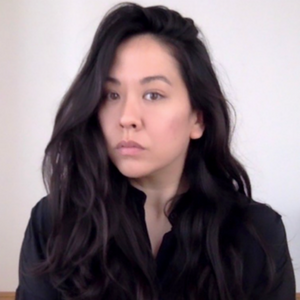
Elise Misao Hunchuck
Panel 3 Speaker
Elise Misao Hunchuck (she/her) is a transdisciplinary researcher, editor, writer, and educator. Based in Berlin and Milan, her practice brings together architecture, landscape architecture, and media studies to research, write, and teach about sites in Canada, Japan, China, Ukraine, and the U.S. She is the journal editor and curator of transmediale, the annual festival for art and digital culture in Berlin. She is an editorial board member for the journal SCAPEGOAT: Architecture, Landscape, Political Economy and an Adjunct Assistant Professor at GSAPP at Columbia University. Alongside Marco Ferrari and Jingru (Cyan) Cheng, she co-led the architectural design studio ADS7: Politics of the Atmosphere at the Royal College of Art in London (2019–2022). She has also taught at the John H. Daniels Faculty of Architecture, Landscape, and Design at the University of Toronto, the Azrieli School of Architecture and Urbanism at Carleton University, and directed a multi-year research and design studio (2019–2022) at The Bartlett Faculty of the Built Environment at University College London (UCL). Her writing and editorial works have been published in The Avery Review, The Funambulist, FLASH Art, Fotograf, Archive Books, Damaged Goods, Edinburgh University Press, University of Minnesota Press, MIT Press, Onassis Foundation, PUNCH Books, Routledge Books, Spector Books, and Sternberg Press. She is also a 2022 Graham Foundation Grantee.

Jordan Carver
Panel 3 Speaker
Jordan H. Carver is a writer, educator, and designer based in New York. He is a co-author of America Recovered (Actar, 2019) and author of Spaces of Disappearance: The Architecture of Extraordinary Rendition (UR, 2018). Carver is the managing editor of Theory & Event, editor-at-large for the Avery Review, and a core member of Who Builds Your Architecture? He is currently a Henry M. MacCracken Doctoral Fellow in American Studies at New York University where he works on architecture, borders, and the construction of racial sovereignty.
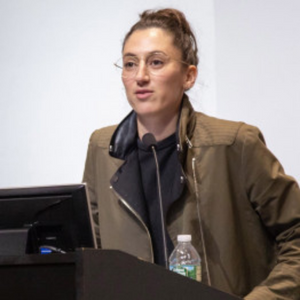
Nora Akawi
Panel 3 Speaker
Nora Akawi is a Palestinian architect and an Assistant Professor at The Cooper Union, New York. She focuses on erasure and bordering in settler colonialism and works at the intersection of architecture with border studies, cartography, and archive theory. Prior to joining The Cooper Union, Akawi taught at Columbia University's GSAPP, where she was the director of Studio-X Amman since 2012 and the founding director of the Janet Abu-Lughod Library and Seminar since 2015. She curated Al Majhoola Min Al-Ard (this earth's unknown) at the Biennale d'Architecture d'Orléans (2019); and cocurated Sarāb: Wadi Rum, a festival of experimental electronic music and performance from the Arab worlds (2019) and Friday Sermon at the Biennale Architettura in Venice (2018). She coedited the books Friday Sermon (2018) and Architecture and Representation: The Arab City (2016). Together with Eduardo Rega Calvo, in 2019 she cofounded the interdisciplinary research and design studio Interim Projects.
Organizers
Farzin Lotfi-Jam
Assistant Professor
Farzin Lotfi-Jam is the director of Farzin Farzin, a multidisciplinary design studio working across architecture, urbanism, computation, and media. His work explores the political implications of technology and computation through exhibition practice. From modeling the control matrices of smart cities to spatializing the cultural logics of social media, his individual and collaborative projects are research-based and multimediatic. Lotfi-Jam's work has been collected by The Centre Pompidou and the Sharjah Art Foundation, and he is a recipient of recent grants and support for his research from the Alexander S. Onassis Foundation, the Graham Foundation for Advanced Studies in the Fine Arts, M+/Design Trust, and The Shed where he was an inaugural Open Call Artist. He has been exhibited at Storefront for Art and Architecture, MAXXI, the Venice Architecture Biennale, the Oslo Architecture Triennale, the Istanbul Design Biennial, the Seoul Architecture Biennial, the Sharjah Architecture Triennial, and elsewhere. His co-authored book Modern Management Methods: Architecture, Historical Value, and the Electromagnetic Image was published by Columbia University Press. He holds graduate degrees in architecture from RMIT University in Melbourne, and Columbia University in New York.
Ekin Erar
Design Teaching Fellow
Ekin Erar is an architect and designer. She has previously lived in Istanbul, Boston, Houston, and Paris, and has worked on projects in Europe and the Americas. Her work has been featured in the Venice and São Paulo Architecture Biennales, as well as exhibitions at Rice University and Pratt Institute. Erar's work brings together image construction, material research, and analysis and recreation of assembly processes, through which she explores the relationship between the real and the represented.
She holds a B.A. in Art History/Architecture from Wellesley College and an M.Arch. from Rice University.



